Biotage®, a pioneer in Flash Purification, launched the unique, removable cap SNAP flash chromatography columns in 2007. This beneficial column design feature continues with the newest Biotage flash columns named Sfär columns.
The new Sfär D columns, where "D" stands for Duo (= dual), provide users with 6 different ways to load sample because they feature a removable cap design providing maximum sample loading option flexibility.
Duo columns are easily recognizable by their removable cap design. To open the columns, simply rotate the flower-shaped top (ergonomically designed for optimal finger positioning to make this operation easier).

The Duo column's removable cap provides six different sample loading options:
1. Direct liquid loading through the top port
This is the most common way of loading your sample in your column. Typically, you would choose liquid loading when your sample is soluble relatively "weak" solvents such as the starting conditions for the gradient that you are going to use for your run.

2. Liquid loading on top of the stationary phase
Removing the Sfär column cap and flow distributor provides the option of adding your reaction mixture directly on top of the column bed. This loading technique can give you the advantage of a more even distribution of your sample on the media.

3. Dry loading on top of the stationary phase
If your sample is poorly soluble in your method's solvents or isn't a liquid, then dry loading is an excellent option.
Dry loading has many chromatographic benefits including potentially higher loading capacity, improved separations, and higher purity fractions. If the chosen sample solvent is too strong, chromatographically speaking, you might get poor separations, earlier than desired compound elution, very broad peaks, and even selectivity changes, none of which is ideal when trying to isolate a pure compound.
Usually, if the sample dissolution solvent is stronger than the “strong solvent” in your method you can have chromatographic issues, especially as injection volume increases. So dry loading can be a good solution to get good purification results if the only solvent that works is too strong for the purification method. Learn more here.

4. Internal dry loading using a Samplet® cartridge
Dry loading with a Samplet® cartridge gives you the benefits of dry loading without having to premix your crude mixture with a sorbent and drying it. In the Samplet® cartridges you have the same media that you have in the columns and instead of taking the sample, adding some silica to it, and evaporating it down, you can just take the sample dissolved in the good, volatile solvent, pour it onto the top of the Samplet® cartridge, and let it evaporate in a fume hood or vacuum oven. When the solvent evaporates your mixture will be concentrated on a small amount of sorbent. You can then insert the Samplet® cartridge on the top of a Sfär Duo column.

5. External dry loading using a sorbent of choice
This dry loading technique is the only possibility when you are not using a Sfär Duo column or the dry sample amount exceeds the volume available on the top of Sfär column.

6. External dry loading using a pre-packed Dry Load Vessel (DLV)
Choosing a pre-packed Dry-Load Vessel for external sample loading offers the advantage of increased load volume while using exactly the same media that you have in your purification column. These properly packed dry load vessels help to avoid potential sample diffusion and symmetry issues and have a increased capacity than most other dry load options.

If you want to be sure that you achieve the best purification results, use the correct loading technique. In most applications, that is dry loading. With Biotage Sfär columns, the four available dry loading options can help improve your flash chromatography results.
Dry Loading vs. Liquid Loading

